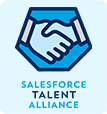Marketing automation has become a critical aspect of modern marketing strategies. If you’re looking to master this field, finding the best marketing automation course online is essential. However, not all courses are created equal, and understanding what to look for can make a significant difference in your learning journey.
Here’s a comprehensive guide to choosing the right marketing automation course and what it should include to ensure you get the most out of it.

Why Many Courses Fall Short
Many online marketing automation courses focus heavily on specific tools, such as Salesforce or HubSpot, limiting their scope to what the tool can do. While understanding tools is important, a comprehensive course should teach marketing automation as a concept first and tools second.
To truly excel, you need a course that covers broader marketing strategies and shows how tools can be integrated to achieve these goals.
Key Features of the Best Marketing Automation Course Online
1. Focus on Concepts Over Tools
The best courses start by teaching the fundamentals of marketing automation rather than diving straight into tools. You need to understand:
- The principles of automating marketing tasks.
- How automation fits into a larger marketing strategy.
- The types of campaigns and workflows that can be automated.
Once you grasp these concepts, learning the tools becomes more intuitive and applicable.
2. Coverage of Both B2B and B2C Strategies
Marketing automation is used differently in B2B and B2C contexts. A good course will cover both, helping you understand:
- How B2B businesses use automation for lead nurturing and account-based marketing.
- How B2C companies leverage automation for personalized consumer experiences and e-commerce.
Beware of courses that only focus on one aspect, as this limits your ability to work across industries.
3. Integration with Digital Marketing Concepts
Marketing automation isn’t just about email marketing—it’s a vast field that includes:
- Lead generation through landing pages.
- Integrating Google Ads and Facebook Ads with automation platforms.
- Reporting and analytics that provide actionable insights for campaigns.
The best marketing automation course online will tie these elements together, showing you how to automate various digital marketing tasks effectively.
4. In-Depth CRM Integration
Marketing automation is a subset of customer relationship management (CRM). Understanding CRM concepts is crucial for success.
- Learn how CRMs like HubSpot, Salesforce, or Pipedrive integrate with marketing automation tools.
- Understand how CRM data enhances automation strategies, from personalized emails to sales funnels.
Courses that skip CRM concepts fail to provide a complete picture of how marketing automation works in real-world scenarios.
5. Tool Diversity and Practical Application
A good course doesn’t just teach you one tool—it introduces you to multiple platforms, such as:
- HubSpot
- Salesforce Marketing Cloud
- Marketo
- Mailchimp
Practical applications and real-world projects should be included, giving you hands-on experience in automating campaigns and workflows.
What to Avoid in a Marketing Automation Course
- Tool-Centric Focus: Courses that only teach a single tool without explaining the broader marketing context.
- Limited Scope: Programs that focus only on email marketing and ignore other channels like ads, SMS, or social media.
- No CRM Coverage: Marketing automation without CRM understanding is incomplete.
Additional Learning Resources
If you’re eager to dive deeper into marketing automation, here are some resources to consider:
- Books on Marketing Automation: Look for books that cover both the conceptual and practical aspects.
- Free Courses on Platforms Like Udemy: Some introductory courses are free and can be a good starting point.
- Trailhead by Salesforce: Offers insights into their platform and its capabilities.
Final Thoughts on HubSpot to Marketing Cloud Migration
The best marketing automation course online equips you with a comprehensive understanding of marketing concepts, strategies, and tools. By focusing on broader concepts like CRM integration, B2B and B2C strategies, and practical applications, you’ll gain the skills needed to excel in the competitive marketing landscape.
Before enrolling, ensure the course aligns with your goals and provides a balanced approach to theory and practice. Happy learning!



